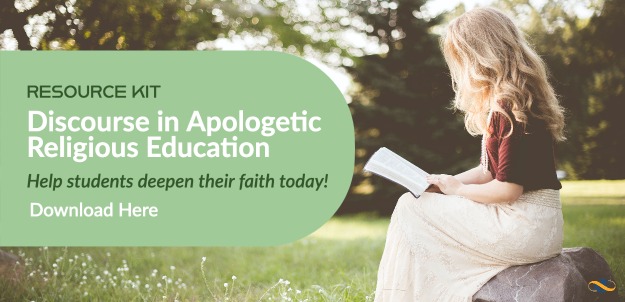The announcement that Merriam-Webster’s “word of the year” for 2022 is “gaslighting” speaks volumes about the need to catechize truth.
According to a recent Associated Press report, lookups for “gaslighting” at the Merriam-Webster website jumped 1,740 percent from the comparable period last year. An editor said such an increase “came as a surprise” to him and his colleagues.
But perhaps viewers of political news coverage—along with observers of relativism in our society, the bending of reality in our entertainment, and the psychological vulnerability in our families—should not be shocked by this dictionary development.
Gaslighting: Psychological Manipulation
The online definition for gaslighting calls it the “psychological manipulation of a person, usually over an extended period of time, that causes the victim to question the validity of their own thoughts, perception of reality, or memories and typically leads to confusion, loss of confidence and self-esteem, the uncertainty of one’s emotional or mental stability, and a dependency on the perpetrator.”
This abuse goes far beyond “little white lies.” Any heightened awareness or fear of this behavioral trend revealed by the vocabulary research data must prove that American individuals and institutions are at risk; rhetoric and conversation are being weaponized.
You might say we could have predicted this danger when editors at Oxford Languages announced their spotlighted word of 2016 was “post-truth.” This term describes circumstances where objective facts are less influential in shaping opinions than appeals to feelings, ideas, and what we would like to believe.
A “post-truth” and “gaslighting” culture needs healing in mind and heart, faith and reason. The Catholic Church can offer integral evangelization, drawing upon sources of genuine knowledge and wisdom. We can prescribe a pursuit of God that is grounded in reality—and a relationship with Jesus Christ as “the way, the truth, and the life.”
Pre-emptive Lessons of The Catechism
Psychologists tell us that children show early signs of lying at 2-3 years of age, and it is all too easy for kids (and adults) to suffer, both as perpetrators and victims, in attacks on truth and trust. The Catechism—with many messages, starting with reference to the Eighth Commandment, “You shall not bear false witness against your neighbor”—is a valuable resource to teach pre-emptive lessons of responsibility toward created reality and human dignity.
“Offenses against the truth express by word or deed a refusal to commit oneself to moral uprightness,” says CCC paragraph 2464. “They are fundamental infidelities to God, and, in this sense, they undermine the foundations of the Covenant.”
Especially in paragraphs 2475-2492, the Catechism teaches how to think about truth in the context of our loving relationship with God and our call to love our brothers and sisters, locally and globally.
One powerful counterpoint to the critical tone of our times is the instruction to think positively about others and to show this through one’s words. In 2477, the preferred avoidance was not only of calumny but of detraction (disclosing another’s failing, albeit a true fault). Although there are times when disclosure is justified, this is food for thought that bespeaks love and hope, humility and solidarity.
The call to prudence continues in 2478: “Interpret your neighbor’s thoughts, words, and deeds in a favorable way as much as possible, in order to avoid rash judgment.” This sentiment is an oft-forgotten preventive measure against snap judgments and snarky remarks, not to mention road rage and worse forms of anger or violence.
Before children can become indoctrinated by our culture’s default to mockery or demonization, they can learn that all people have a natural right to the honor of their name and reputation. “A lie is a mortal sin if it does grave injury to the virtues of justice and charity.” (2484)
There are still more signals of our need for truthfulness as a key to virtue and integrity—for both the speaker and receiver of words. Here is where gaslighting comes in, too, as a society-wide or intensely intimate concern. The practice becomes recognizable as a potential moral disaster. This practice was clearly seen in the 1944 film “Gaslight,” in which a malevolent husband nearly drives his wife insane for the sake of his personal gain.
“A lie does real violence to another,” the Catechism responds at 2486. “It affects his ability to know, which is a condition of every judgment and decision. It contains the seed of discord and all consequent evils. Lying is destructive of society; it undermines trust among men and tears apart the fabric of social relationships.”
Raising Catholic Voices
Whether or not a situation calls for explicit references to the movie or to Merriam-Webster, the attention given this year to gaslighting can illuminate for Catholic educators and evangelizers our all-too-common teachable moments—literally, moments of truth when Catholic voices must be raised to undo the damage from thoughtless and harmful wordplay.
Let it never be said that future internet surfers, lost in the afterglow of gaslight, left without the candlelight of Catholic wisdom, will desperately cling to their most basic hopes by searching for the word “truth.”


